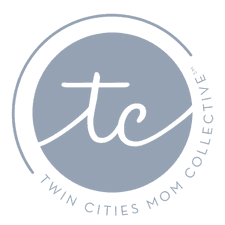
I love getting great deals when I’m shopping. I once took my husband garage sale shopping and found the cutest, brand name jean jacket for my toddler for pennies. I kept saying over and over again to my husband, “Can you believe the deal we got? Isn’t this just amazing! I told you this was going to be so excellent!!” until he finally turned to me and said, “I just don’t think we get the same level of thrill about things like this.” At which point I realized that I had been going on and on about a used jean jacket, and maybe my level of enthusiasm had been a bit over-exaggerated.
Yet even if my enthusiasm may be over-amplified at points, there is still an inherent thrill about getting a great deal on something you need. And in today’s world, there are so many different ways to shop. I can go to a big-box store like Costco and get industrial size portions of things, or I can visit four different grocery stores, or I can even order online and have it delivered to my doorstep. And speaking of online, I can find companies that offer free shipping, free two-day shipping, or even free shipping and free returns. I can buy almost anything from my couch (which feels like a major advantage when pitted against getting kids in car seats, drive time, extended shopping cart time, car seats again, and drive time again). I can be incredibly selective about what I buy and where I buy it. I can find out exact product details and do extensive price shopping without ever stepping foot in a store.
I have to think, though, that there’s probably a darker underside to some of this convenience (because as we all know, every positive seems to have an unfortunate negative that comes along with it). Such as, what do I know about online shopping and the retailers I’m shopping from? Do they pay their employees well? Do they use ethical business practices? For example, every time I receive a shipment from one particularly giant online company, their delivery drivers run— actually run— from their van, to my house, then back to their van, and then shoot off (one van even hit a light pole, I presume because he was so bent on leaving as quickly as possible). I’ve been meaning to stop them and ask— are you simply hurrying because you have x many deliveries to do, and the sooner you finish the sooner you’re done with your shift? Or is it because you are paid poorly and have an unreasonable number of deliveries that you are expected to complete?
I— and we— often forget that as consumers, we have power. Our money props up certain companies and supports certain things. It’s easy to imagine products as neutral, consumption as neutral; but on a very basic level, every product has a story— a place of origin, people and practices involved in creating, shipping, and selling the item.
So it begs the question: What sort of companies and products are we supporting? Have you ever considered who made the product you just ordered? What they were paid? What kind of methods were employed to manufacture, market, and sell the item?
Lest we overwhelm ourselves and try to research every product that has come into our home in the last year, let me share with you three products (three C’s) that I have become particularly passionate about when it comes to supporting ethical business practices:
Coffee. In high school, I thought drinking coffee was cool— so collegiate, so adult— and I started drinking carmel-vanilla-mocha-triple-sugar lattes to ease myself in. Now I drink it black, and I drink as much as I’m allowed depending on my season of life. I love it, excessively so. But it wasn’t until college that I learned about the darker underbelly of coffee production— recurring instances of forced labor, child labor, poor wages, etc. I quickly became insistent that the coffee we bring into our house not be complicit in this kind of treatment. Fair Trade coffee is a basic certification and starting point, but arguments exist that even Fair Trade doesn’t provide enough assurance that coffee farmers are paid decent wages and have safe labor practices. If you haven’t before, find out more about what kind of coffee you’re bringing into your home and learn about the way it’s been produced. Despite my devotion to that steamy cup of goodness each morning, I would give it up rather than be complicit in practices lacking such integrity.
Chocolate. Chocolate consumption in the United States has a notoriously shadowy side, often hidden from the general public. As consumers, it’s important for us to examine: What brand of chocolate am I buying? What are the manufacturing practices of these companies like? And/or, what kind of chocolate can I buy that is sourced and produced ethically?
Clothing. Admittedly, this is an area I’m still learning about. I do know that as fast fashion has burst onto the scene, it has created an incredible amount of waste, as we purchase and toss clothes regularly to keep up. But what about the actual labor practices? Exactly how do they make the price points for the clothes I buy so low? In our family, we love garage sales and consignment sales; not only are they an opportunity to reuse clothes, but they also help us to save money so that when we do buy clothing, we can buy from companies that are committed to excellent production practices (which, coincidentally, seem to last a lot longer than the cheap things I used to buy constantly). How about you? Have you considered how much clothing you are bringing into your house, either for yourself or for your children, and how it is made?
Coffee, chocolate, clothing. Does it sound overwhelming? I have to admit, sometimes it pains me to consider these things. It feels like just another thing to research, another thing to worry and concern myself about. Much easier to turn a blind eye, to laugh it away, to excuse myself because please, what would I do without cheap coffee or chocolate? But for those of us such as myself that have been blessed financially, I believe I/we are called to steward well financially; to support things worth supporting, to use money for good. And like it or not, as consumers, we are complicit; if a company is using child labor and we continue to buy from them, we are contributing to the flourishing of that business. Unfortunately, we don’t often know. Heck, it wasn’t until somewhat recently that I was even aware that these kinds of practices existed! But, they do.
Instead of wallowing in guilt, or hiding in shame, or ignoring because it’s just too difficult, what if we stopped and asked a few questions? What if we made our best effort to find out a few details and support things worth supporting? That act of adjusting our spending to promote the thriving of people around the world that we have never met? Perhaps it’s a burden. Or perhaps it’s an opportunity, a behind-the-scenes way to take the basic things we do each week (shopping for our family) and translate them into advocating for the flourishing of all peoples.



